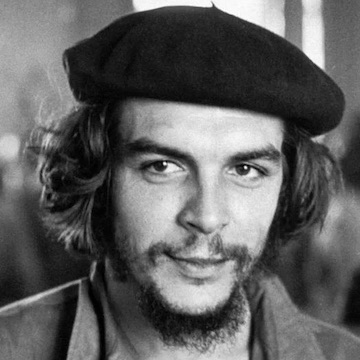Che Guevara's Impact on Latin America and the world

Ernesto "Che" Guevara, the Argentine revolutionary and guerrilla leader, had a profound impact on Latin America and the world. His political ideology, which combined elements of Marxism, anti-imperialism, and anti-capitalism, was a major force in the region during the mid-20th century.
Guevara's political ideology was shaped by his experiences traveling throughout Latin America, where he saw firsthand the poverty and inequality that plagued the region. He believed that the only way to address these issues was through a socialist revolution that would overthrow the capitalist system and create a more equal society.
Guevara's ideas were heavily influenced by Marxism, which he believed offered a scientific understanding of society and a path to socialism. He rejected the Soviet model of socialism, however, and instead advocated for a "new socialist man" who would be selfless, moral, and dedicated to the revolution.
Guevara's anti-imperialist beliefs were also a major part of his political ideology. He saw the United States as a powerful and exploitative force in Latin America and believed that the region's countries needed to reject American influence and chart their own course.
Guevara's political ideology had a major impact on the region during the 1950s and 1960s. In Cuba, where Guevara played a key role in the revolution led by Fidel Castro, his ideas were put into practice. The Cuban Revolution was a major victory for the left in the region and served as an inspiration for other revolutionary movements.
In other countries in the region, Guevara's ideology also had a significant impact. His ideas helped to inspire revolutionary movements in countries like Guatemala, Nicaragua, and El Salvador. These movements, however, were ultimately unsuccessful in achieving their goals and were met with brutal repression.
Guevara's legacy in Latin America is a mixed one. On one hand, his ideas helped to inspire a generation of revolutionaries and sparked important debates about poverty, inequality, and imperialism. On the other hand, the violent nature of his revolution and the lack of democracy in post-revolutionary Cuba has been criticized.
Overall, Che Guevara's political ideology had a major impact on Latin America and the world. His ideas about socialism, anti-imperialism, and the "new socialist man" continue to shape political discourse in the region and around the world.
Che Guevara's political ideology and his ideals of socialism, anti-imperialism, and the "new socialist man" are still debated and influential today, more than 50 years after his death. His image and writings continue to be used to mobilize people for a variety of causes, both revolutionary and non-revolutionary.
On the other hand, some people view Guevara as a symbol of authoritarianism and repression. Critics of Guevara point to the human rights abuses that occurred under the Castro regime in Cuba, as well as Guevara's own writings in which he advocates for the use of violent means to achieve political goals.
Despite this, there is no denying that Che Guevara's political ideology had a profound impact on Latin America and the world. His ideas continue to shape political discourse and inspire people to fight for a more just and equal society.
In conclusion, the impact of Che Guevara's political ideology on Latin America was significant. His ideas about socialism, anti-imperialism, and the "new socialist man" inspired a generation of revolutionaries and sparked important debates about poverty, inequality, and imperialism. His legacy is still debated and influential today, but his impact on Latin America and the world cannot be denied.
